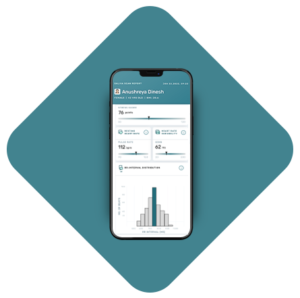Blood Sugar or blood glucose is the measure of glucose concentrated in the blood. Properly maintained glucose levels are necessary for normal function in a number of tissues, including the human brain.


WHAT IS BLOOD GLUCOSE (SUGAR) ?
Blood glucose mainly comes from carbohydrates in the food and drinks we consume. Blood carries glucose to the cells and is the main source of energy for our body.
Symptoms of high blood sugar include, frequent thirst and hunger, Frequent urination, fatigue, unexplained weight loss, blurred vision or slow healing of wounds.
Insulin, a hormone our pancreas makes, is the most significant contributor to maintaining healthy blood sugar.
MAGNITUDE OF BLOOD GLUCOSE
Diabetes is a chronic disease that occurs either when the pancreas does not produce enough insulin or when the body cannot effectively use the insulin it produces, leaving us at risk of elevated glucose levels in our blood.
Nearly 1 in 10 adults are living with diabetes and almost half of them are undiagnosed. 3 in 4 adults with diabetes live in low and middle income countries.


MEASURING GLUCOSE
Since eating food affects blood sugar, fasting blood glucose tests show a more accurate picture of our baseline blood sugar. People with diabetes need to monitor their blood sugar multiple times a day to effectively manage the condition.
Glucose levels are usually lowest in the morning, before the first meal of the day, and rise after every meal for an hour or two before returning to normal. A healthy fasting blood glucose level is around 70 to 99 mg/dL (3.9 to 5.5 mmol/L)..
Over time, having too much glucose in our blood can cause serious health problems (diabetes complications). So, it’s important to keep our blood glucose levels within target range.
LOWER GLUCOSE LIFESTYLE
Glucose (sugar) levels hinge on our regular habits, such as
- regular exercise,
- eating meals that contain a good mix of protein and healthy fat
- staying hydrated
- managing stress levels
- quitting smoking and moderating alcohol intake
- getting quality sleep
An ideal approach would be to measure Blood Glucose at periodical intervals and adapt the suitable lifestyle.

TARGET GROUPS FOR GLUCOSE
CoHeal supports diverse groups facilitating population health management
Academia
Help individuals cope with academic environment
womanhood
Emphasis on women's health including menstrual problems, pregnancy and post-partum depression
Corporate
Reduce impact of corporate stress on well-being
Geriatrics
Monitor Cognitive Health
Health & Wellness
Assess the impact of Fitness and Wellness regimes
Sports
Prevent Overtraining and improve performance
Armed Forces
Decreasing Vulnerability in the warzone
